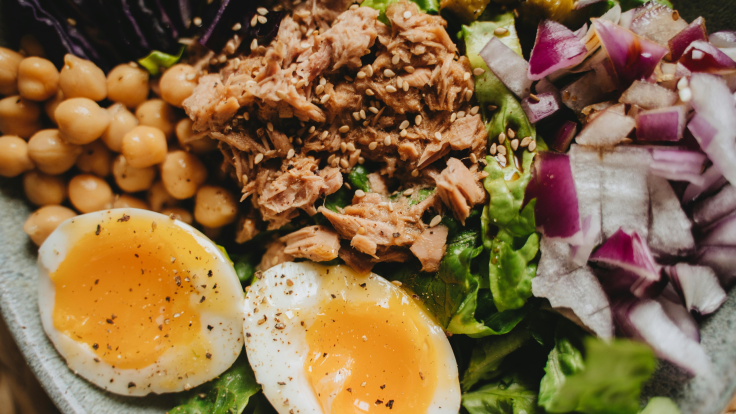Listeria Contamination Concerns Spark US Tuna Recall: How Serious Is Listeriosis?
Listeriosis is a rare but potentially deadly disease contracted by eating food products containing listeria

Tuna salad products in seven US states have been recalled due to concerns they may be contaminated with Listeria Monocytogenes.
Listeria Monocytogenes, or, listeria, is a bacterium that can cause serious and sometimes fatal infections and diseases, including listeriosis–one of the most severe foodborne diseases.
The FDA announced the recall of dozens of Reser's Fine Foods products due to possible listeria contamination found in breadcrumbs used as an ingredient in the products.
The tuna salad products included sandwiches, croissants, crackers, and salads.
Albertsons, Randalls and Tom Thumb stores in Arkansas, Louisiana, Oklahoma and Texas voluntarily recalled the products, as did Jewel Osco stores in Illinois, Indiana and Iowa.
'Consumers who have purchased these items are urged not to consume these products and to dispose of them or return the items to their local store for a full refund,' the FDA reported.
What Is Listeriosis?
Listeriosis is a rare disease caused by eating food containing listeria.
The World Health Organisation (WHO) warns that foodborne listeriosis is 'one of the most serious and severe foodborne diseases.'
While cases of only 0.1 to 10 cases per one million people occur a year, the high death rate associated with listeriosis makes it a serious concern, particularly for pregnant women, elderly people, and those with weakened immune systems.
There are two types of listeriosis.
The first is noninvasive listeriosis (febrile listerial gastroenteritis), which is a mild form of listeriosis that affects otherwise healthy individuals. Symptoms include diarrhoea, fever, headache, and muscle pain.
The second type, invasive listeriosis, is more severe, affecting high-risk groups like pregnant women, patients undergoing cancer treatments, HIV patients, the elderly, and infants. Symptoms are similar but more severe and there's a high mortality rate of 20 per cent to 30 per cent.
Pregnant women are roughly 20 times more likely to contract listeriosis than other adults and it can cause miscarriages and stillbirths.
How Is It Contracted?
Listeriosis is mainly contracted through eating chilled ready-to-eat foods since listeria thrives and multiplies at refrigerated temperatures.
Food, like tuna salads at supermarkets, can become contaminated with listeria during processing. During distribution and storage, the bacteria can multiply to dangerous levels.
Examples of chilled ready-to-eat foods more likely to contain listeria include cold deli meats, smoked and cured fish, cooked shellfish, some cheeses, pre-prepared sandwiches and salads, pre-cut fruit, and dairy products containing unpasteurised milk.
Listeria can easily spread to other foods and surfaces as well. It doesn't spread from person to person, although it can spread from pregnant women to their unborn babies.
Prevention and Treatment
Listeriosis can be prevented by practising safe food handling.
Keeping food clean, making sure cooked and raw foods are separated, keeping food at safe temperatures, cooking food thoroughly and using safe water and raw materials are advised by the WHO.
The FDA urged 'anyone who purchased or received any recalled products to use extra vigilance in cleaning and sanitizing any surfaces and containers that may have come in contact with these products to reduce the risk of cross-contamination.'
Listeriosis is treatable if diagnosed early. Antibiotics can be administered if symptoms are severe and can prevent infection of the fetus when contracted by pregnant women.
In most cases though, listeriosis is mild and symptoms go away within a few days.
© Copyright IBTimes 2025. All rights reserved.






















